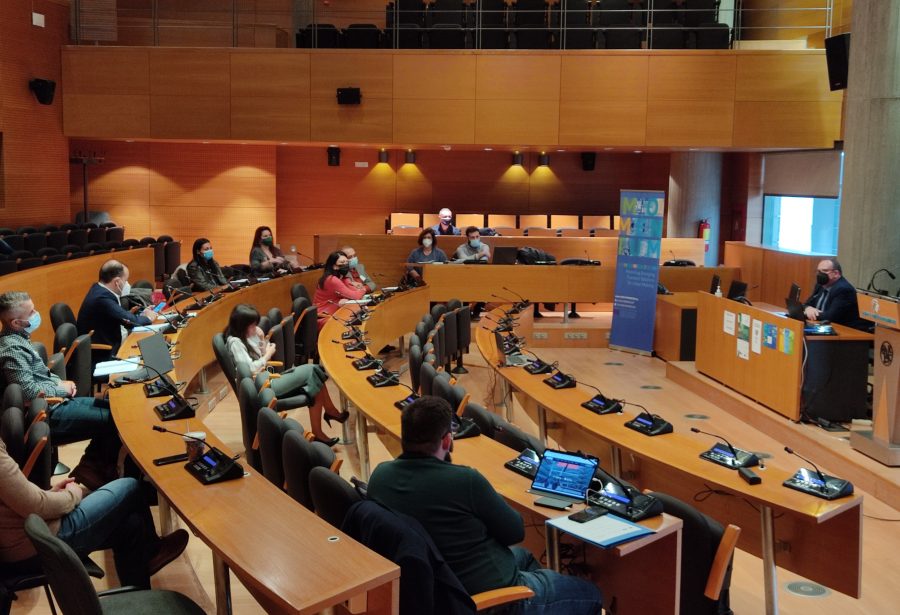
SUMP objectives, EU-funded projects and a decision-support tool – Thessaloniki is prepared for the future
Thessaloniki held its peer-to-peer workshop in a hybrid format on 23 November 2021. The aim of the five hour-long workshop is to inform local stakeholders about the progress of the MOMENTUM project, while providing an insight into the development of the tools. After welcoming words by the mayor of Thessaloniki, Mr. Konstantinos Zervas, and the research director of Hellenic Institute of Transport, Dr. Georgia Ayfantopoulou, three presentations were held. These included the demonstration of the MOMENTUM decision-support-tool, which was based on the cases of Thessaloniki and will be later tested in the three other city partners of Leuven, Madrid, and Regensburg. Furthermore, the SUMP of Thessaloniki and the related KPIs were presented by Dr. Georgia Ayfantopoulou, followed by a presentation of the Interreg-funded CliMoBCity 2050 project. The recording of parts of the webinar is available in Greek.
The MOMENTUM decision-support tool enables cities to predict the deployment of shared mobility services or demand-responsive transport in specific areas or neighbourhoods. The tool can be used in different frameworks, either with no available transport model and mobility datasets, or with a detailed data to support the calculation. Therefore, the tool is very versatile and can provide support for most cities in Europe to decide if demand-responsive transport solutions or emerging mobility solutions are a useful addition to existing public transport structures. In detail, these levels are:
- Level 1: City has no transport model of the city or any mobility dataset
- Level 2: City has no transport model of the city, but a comprehensive mobility data set
- Level 3: City has a detailed transport model of the city with highly granular mobility data
The attendees had the opportunity to ask questions and discuss about the functionality of the tool. Besides several technical questions, concerns were raised that existing public transport infrastructure should be prioritised prior to the implementation of new mobility solutions. CERTH/HIT reassured local stakeholders that existing mobility offers will remain a high priority.
Additionally, Dr Ayfandopoulou presented the SUMP objectives as well as the main interventions suggested in the plan for the time horizon for the year 2025 and 2030, followed by a presentation by Mr Rafael Katadigkas from the LEVER company, which will provide a charging infrastructure for electric vehicles in Thessaloniki. The local event was concluded with a presentation of ‘CliMoBCity 2050’, which aims to answer the following question: ‘How must the urban structure change to achieve climate-friendly mobility?’. The project partner cities of Plymouth (UK), Leipzig (DE), Bydgoszcz (PL), Almeria (ES) and Thessaloniki will find their answer to this question within the project framework, which will conclude in summer 2023.


